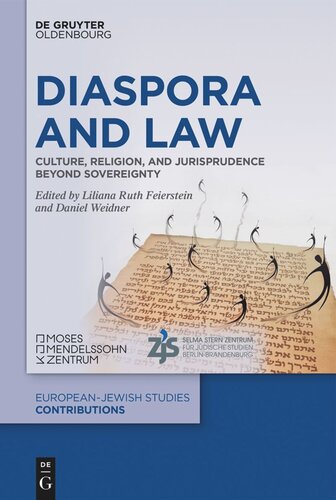

Most ebook files are in PDF format, so you can easily read them using various software such as Foxit Reader or directly on the Google Chrome browser.
Some ebook files are released by publishers in other formats such as .awz, .mobi, .epub, .fb2, etc. You may need to install specific software to read these formats on mobile/PC, such as Calibre.
Please read the tutorial at this link: https://ebookbell.com/faq
We offer FREE conversion to the popular formats you request; however, this may take some time. Therefore, right after payment, please email us, and we will try to provide the service as quickly as possible.
For some exceptional file formats or broken links (if any), please refrain from opening any disputes. Instead, email us first, and we will try to assist within a maximum of 6 hours.
EbookBell Team

4.0
26 reviewsToday, law is no longer homogenous or unquestioned. Different overlapping legal systems constantly interfere with one another, both on an international level, in complex transnational contexts such as the European Union or human rights law, but also in the context of cultural diversity or conflicts between religious norms and civil institutions, between minorities and the power of the state. On the other hand, the neutrality of law is also under growing pressure, be it from different global transnational players, or from within nation states where calls are made to adapt law to the will of "the people." The heated European debate on the "refugee crisis" has made it manifest that law is more necessary than ever and yet fundamentally contested, perhaps even caught in contradictions and self-limitations. At the same time, the current perspective on legal problems allows us to address issues of diversity and the role of Europe in the globalized world more clearly. The articles of this book take these recent developments and debates as a starting point to discuss from the perspective of different disciplines the pressing question of how to live together in the new millennium and how to figure the long history of law before, besides, and after the dominant paradigm of state law.